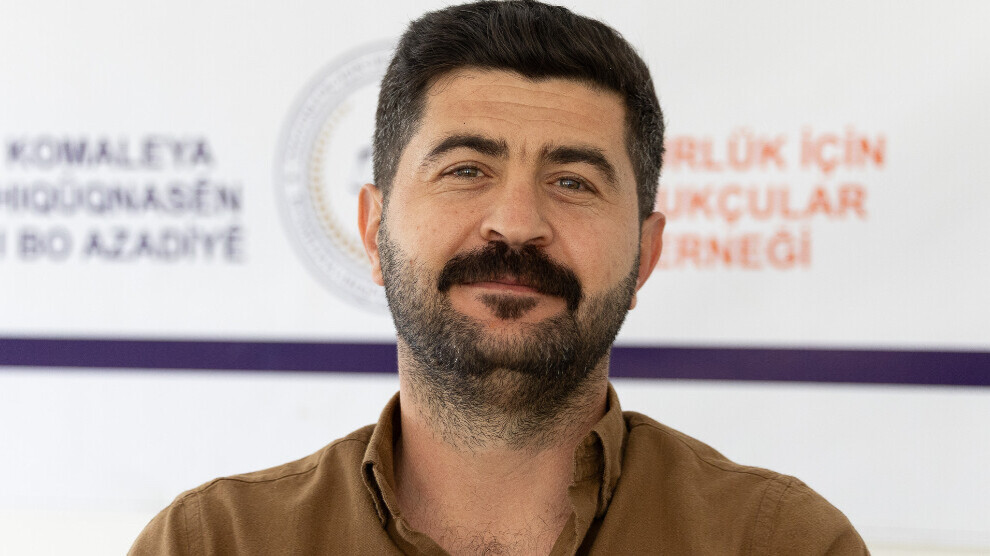‘The right to hope concerns the collective conscience of society’
Lawyer Muhittin Muğuç said that the right to hope hope is not only a legal issue but also part of Turkey's confrontation with democracy.
Lawyer Muhittin Muğuç said that the right to hope hope is not only a legal issue but also part of Turkey's confrontation with democracy.

The ‘Call for Peace and Democratic Society’ made by Kurdish People's Leader Abdullah Öcalan on February 27 reopened discussions in Turkey about reviving the long-stalled democratic resolution process. While Öcalan called on his organization to lay down arms, the Kurdistan Workers' Party (PKK) complied with the call and announced its decision to end the armed struggle following its 12th congress, convened upon Öcalan’s call. As the process unfolded, the people repeatedly called on the state to take concrete steps, while the latest judicial reform package drew criticism from many segments of society. There is an expectation for restorative and legal steps to be taken, with emphasis placed on the right to hope and constitutional reform as the first issues requiring a change.
Muhittin Muğuç, co-chair of the Diyarbakır Branch of the Association of Lawyers for Freedom (ÖHD), emphasized that this process carries not only political but also profound legal dimensions. Drawing particular attention to the situation of prisoners sentenced to aggravated life imprisonment, Muğuç stated, “This is not merely about the condition of an individual; it is a structural issue that reveals Turkey’s approach to law, justice, and human rights.”
Muğuç remarked that the "right to hope" is a concept shaped by the jurisprudence of the European Court of Human Rights (ECtHR) concerning the death penalty and aggravated life sentences. The ECtHR has ruled that in countries where the death penalty has been abolished, replacing it with aggravated life imprisonment is also contrary to human dignity. Within this framework, the court states that prisoners must have the hope of release one day.
“Human life is sacred. A sentence handed to an individual affects not only that person but also their family, community, and the broader intellectual fabric of society,” said Muğuç and added that the ECtHR bases its principle on this idea and evaluates the right to hope accordingly.
A humanitarian right is violated
The death sentence handed to Kurdish People's Leader Abdullah Öcalan in 1999 was commuted to aggravated life imprisonment following Turkey’s harmonization process with the European Union after 2002. However, this type of sentence requires the prisoner to remain incarcerated for life without any possibility of release. Describing this as a clear violation of human rights, Muğuç stated, “Mr. Öcalan’s situation is symbolic. Yet it is not limited to him alone. This applies to all prisoners sentenced to aggravated life imprisonment. Every day spent in prison under these conditions is a day in which the right to hope is violated.”
Muğuç noted that, within the framework of the ECtHR ruling in the Özkan Ekinci case, Turkey has been given a deadline until September 2025. During this period, Turkey must amend its law on the execution of sentences in compliance with ECtHR jurisprudence.
If this decision is not implemented, Turkey’s relations with international legal mechanisms will be harmed, said Muğuç and added that the monitoring process conducted by the Committee of Ministers is ongoing. “This is not merely an individual right; it also affects Turkey’s international status, such as its membership in the Council of Europe. Failure to comply with ECtHR rulings may even lead to the suspension of membership,” the lawyer warned.
The Kurdish question is a legal issue
Muhittin Muğuç underlined that in Turkey, Kurds can only access rights under the “Turkish” identity, describing this situation as "constitutional denial." He stated that the solution lies in recognizing democracy and the rule of law, adding, “If a legal definition is not made in this process, neither democratic politics will develop nor social peace will be achieved. The Kurdish people do not see themselves represented in this constitution. Practices against prisoners prosecuted under the Anti-Terror Law (TMK) are extremely harsh and discriminatory. A comprehensive reform of the law on the execution of sentences is necessary to implement the right to hope. This applies not only to Abdullah Öcalan but to many prisoners as well. Unless the inequalities in the mentioned law are addressed, the right to hope cannot truly be realized.”
Muğuç emphasized that the right to hope is a critical threshold for testing the sincerity of the democratic resolution process. Stressing that the recognition of this right is not a political but a humanitarian and legal necessity, he concluded: “The right to hope is the litmus test of this process. If a true resolution is desired, this right must be implemented and the regulation on criminal execution must be amended. The right to hope concerns not only those held in prisons but the collective conscience of the entire society.”